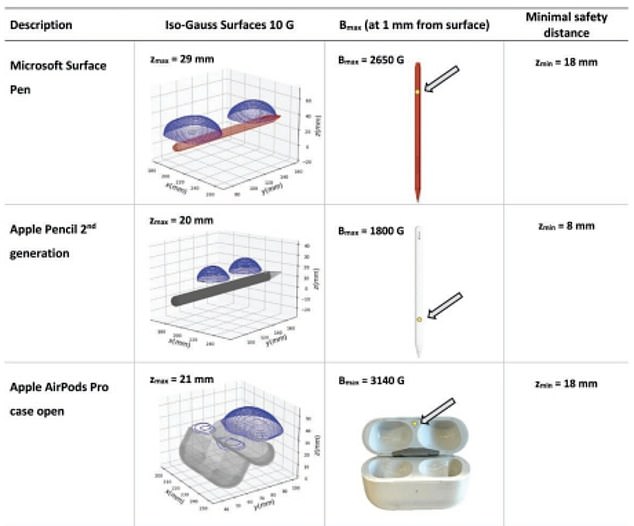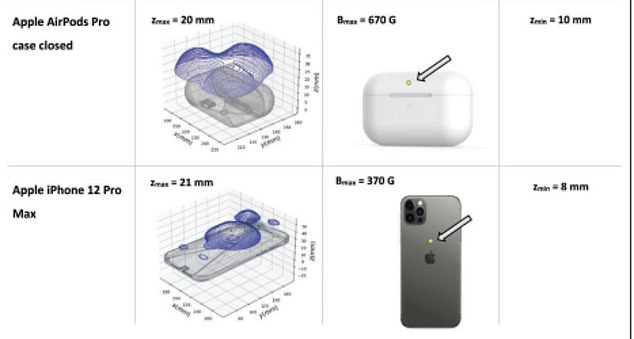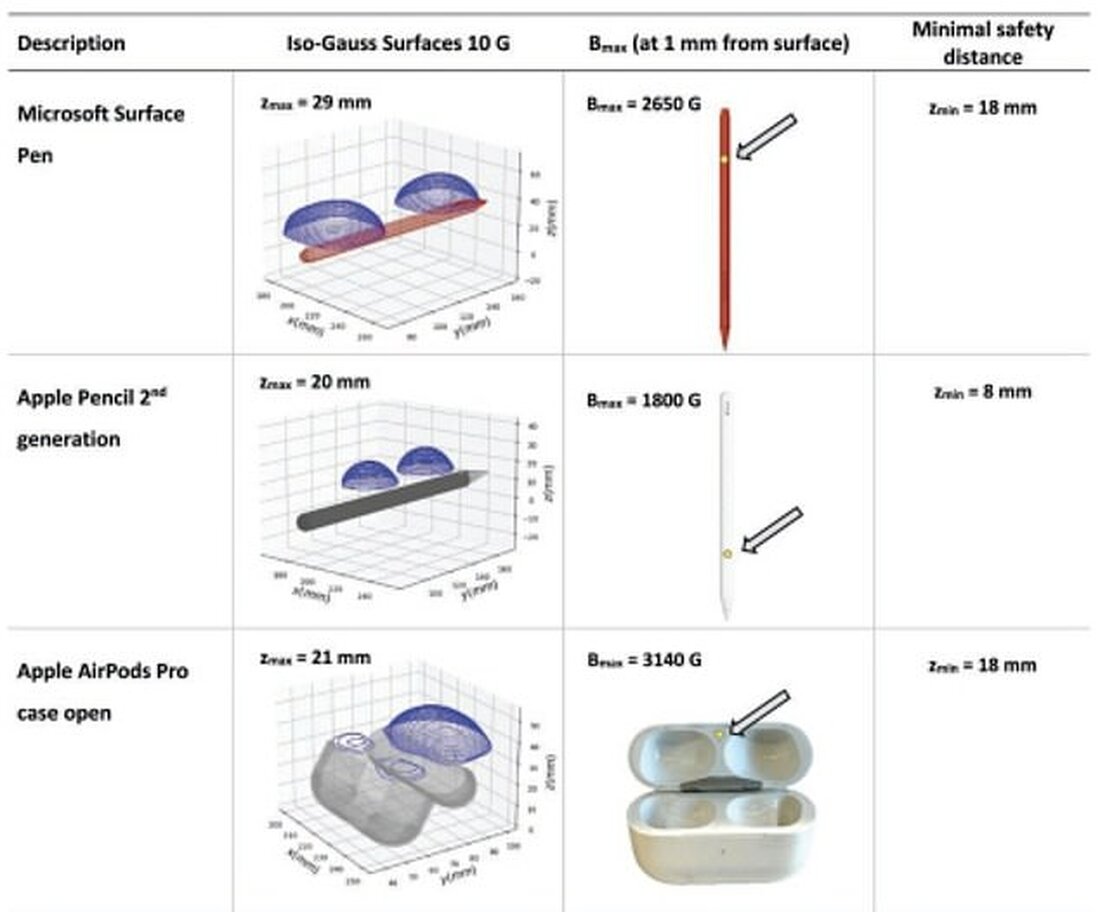Electronic devices from Apple and Microsoft can interfere with life-saving heart devices, experts warned today.
Swiss researchers claim that AirPods, “pencils” and iPhones have strong magnetic fields that could potentially stop implanted cardiac devices (ICD) from working.
Scientists are now urging all patients fitted with the pacemaker-like devices to ensure they do not store electronics in bags near their chests.
The team said that "any" electrical device that contains a magnet could theoretically pose a "danger" to patients who rely on ICDs to get their hearts back into rhythm.
Dr. Sven Knecht, who was involved in the University of Basel study, said: “The public needs to be aware of the potential risks of portable electronic devices.
“These devices can cause problems if they are carried in your shirt or jacket pocket across your chest, or if you lie on the couch and place the electronic device on your chest.”

The above shows the magnetic fields of the examined Microsoft Pen, Apple Pen and Apple Airpods (blue areas). The yellow dots represent the point where the magnetism is strongest

The above shows the magnetic fields of a closed Apple AirPod case and an iPhone 12 Pro Max. The yellow dots represent the point where the magnetism is highest
ICDs send electrical impulses to maintain heart rhythm in people where it may be irregular - a condition known as arrhythmia.
They work in the same way as pacemakers, delivering weak electric shocks to maintain a steady heartbeat.
But they can also deliver high-level shocks to calm life-threatening arrhythmias that can, for example, trigger cardiac arrest.
The researchers warned that any electronic devices with magnets could interfere with ICDs and pacemakers.
In the study, published in the Journal of the American Heart Association, scientists measured the magnetic fields of three devices.
These were the Apple AirPods Pro charging case, the Apple Pencil 2nd Generation and the Microsoft Surface Pen.
The devices were placed at varying safety distances, and ICDs - which were not attached to anyone - were monitored to see if they suffered any interference.
The experiments were repeated five times to estimate the minimum safety distance between the electronic devices and the medical devices.
The results showed that the Apple products could not be placed closer than 0.78 inches or 2 cm without interfering with the ICDs.
But the Microsoft product, which costs £70, couldn't get within 1.1 inches (2.9cm).
Corentin Fery, one of the study authors, called for patients to be warned about the risks.
The team said magnets can activate a switch that prevents ICDs from delivering life-saving shocks.
"If you wear a portable electronic device close to your chest and have a history of tachycardia with an ICD, strong magnets in these devices could disable it," he said.
“Heart patients should be aware of these risks and their doctor should instruct them to use these electronic devices with magnets with caution.
“The most important thing to remember is that any electronic device can pose a danger, especially those with a magnet inside.”
Charities have been warning about the dangers posed by electrical devices for ICDs and pacemakers for years.
They are supported by several studies, including one from last year that warned that the Apple iPhone 12 could disrupt medical devices.
The American Heart Association says all cell phones should be kept at least 6 inches away from pacemakers to minimize risks.
More than 4,000 people in the UK have an ICD and 500,000 have pacemakers. For comparison, 800,000 people in the United States have ICDs and 3 million have pacemakers.
Apple and Microsoft have been contacted by MailOnline for comment.

 Suche
Suche
 Mein Konto
Mein Konto

